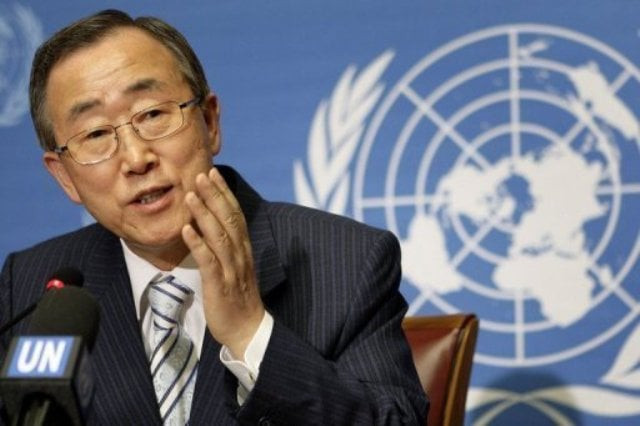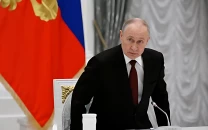UN's nuclear disarmament conference may sink over Pakistan's reluctance: Ban-ki Moon
Islamabad maintains it will not enter any nuclear negotiations which tip the balance of power in India's favour.

UN's nuclear disarmament conference may sink over Pakistan's reluctance: Ban-ki Moon
"Today, this distinguished body is no longer living up to expectations," Ban said at the first of three public sessions scheduled this year, in a speech read out by the top UN official in Geneva, Kassym-Jomart Tokayev.
"The tide of disarmament is rising, yet the Conference on Disarmament is in danger of sinking," Ban warned the delegates from 65 countries. "Let us restore the conference to the central role it can and must play in strengthening the rule of law in the field of disarmament."
The UN chief lamented that the practice of deciding by consensus "is currently used as a de facto veto power to stall every attempt to break the impasse."
"The future of the conference is in the hands of member states," Ban said, urging the immediate start of nuclear negotiations.
Citing national security, Pakistan has since May 2009 balked at implementing a work programme established by the UN conference, blocking the resumption of nuclear talks.
Taking advantage of a new climate established by US President Barack Obama, the conference emerged in May 2009 from 12 years of obscurity, adopting for the first time since 1996 a programme of negotiations on fissile materials and weapons.
Since then the reluctance of Pakistan to accept a possible treaty banning the production of fissile material for nuclear weapons has prevented the conference moving forward.
In recent years authorities in Islamabad said they did not wish to enter into negotiations on a treaty which they say endorses an "asymmetry" of nuclear power between Pakistan and its arch-rival India.
The council ends its first session of this year on March 30.



















COMMENTS
Comments are moderated and generally will be posted if they are on-topic and not abusive.
For more information, please see our Comments FAQ